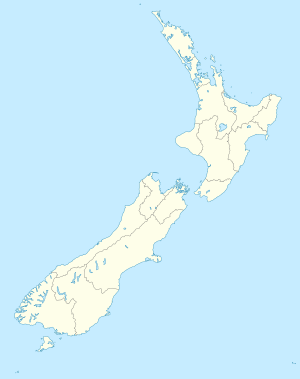Glendale, New Zealand facts for kids
Quick facts for kids
Glendale
|
|
|---|---|
|
Suburb
|
|
| Country | New Zealand |
| Local authority | Lower Hutt City |
| Electoral ward | Wainuiomata |
| Area | |
| • Land | 321 ha (793 acre) |
| Population
(June 2023)
|
|
| • Total | 4,490 |
|
|
||
Glendale is a friendly suburb located in Wainuiomata, which is part of the larger Lower Hutt city. You can find it on the lower part of the North Island of New Zealand.
Contents
Who Lives in Glendale?
Glendale covers an area of about 3.21 square kilometers. As of June 2023, it is home to around 4,490 people. This means there are about 1399 people living in each square kilometer.
Population Changes Over Time
The number of people living in Glendale has been growing.
- In 2006, there were 3,633 people.
- By 2013, this number grew to 3,801.
- In 2018, the population reached 4,050.
This shows a steady increase, with 417 more people living there in 2018 compared to 2006.
A Look at the Community
In 2018, there were 1,233 homes in Glendale. The community had slightly more females (2,049) than males (2,004). The average age of people in Glendale was 31.7 years, which is younger than the national average for New Zealand.
Many young people call Glendale home. About one-quarter of the population (24.7%) was under 15 years old. Another 22.4% were between 15 and 29 years old. Most adults, about 43.9%, were aged 30 to 64. About 9% of the population was 65 years or older.
Different Backgrounds
Glendale is a diverse place with people from many different backgrounds.
- About 63.3% of residents identified as European or Pākehā.
- A significant number, 37.0%, were Māori.
- About 16.8% were Pasifika.
- Around 7.4% were Asian.
- A smaller group, 2.5%, identified with other ethnicities.
It's important to know that some people identify with more than one ethnic group.
About 15.9% of Glendale's residents were born outside of New Zealand. This is less than the national average for New Zealand, which is 27.1%.
Beliefs and Work
When it comes to religious beliefs, almost half of the people (49.0%) said they had no religion. Many others (36.2%) were Christian. Smaller groups followed Māori religious beliefs, Hinduism, Islam, Buddhism, or other religions.
For those aged 15 and older, about 10.4% had a university degree or higher. About 24.9% did not have formal qualifications. The average yearly income in Glendale was $32,200. Most people aged 15 and older were employed, with 55.2% working full-time and 11.6% working part-time.
Education in Glendale
Glendale has a local school called Pukeatua Primary School. This school teaches students from Year 1 to Year 8. As of February 2024. , it has 115 students. Pukeatua Primary School was created in 2002 when two older schools, Glendale School and Pencarrow School, joined together.
 | Calvin Brent |
 | Walter T. Bailey |
 | Martha Cassell Thompson |
 | Alberta Jeannette Cassell |


